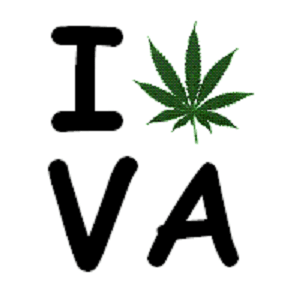The Charlottesville, Virginia, city council approved a marijuana-related resolution Monday night calling on the governor and the legislature “to revisit the sentencing guidelines that merit jail terms for simple possession, do away with rules that suppose intent to distribute without evidence and give due consideration to sponsored state bills that would decriminalize, legalize or regulate marijuana like alcohol.”
[Editor’s Note: To find the actual resolution, click on the link above, select “May 7, 2012 (with background),” then scroll to the very end of the PDF file.]
Under current law, possession of marijuana is classified as a misdemeanor carrying punishment of up to 30 days in jail and/or fines of up to $500. Subsequent convictions carry a jail sentence of up to a year and/or fines of up to $2,500.
The council had been presented with two resolutions, the version that passed and one that also included language making marijuana possession the lowest law enforcement priority, but councilors balked at the lowest priority language, saying they feared it would send the wrong message to children. Two of the five-member council supported the lowest priority language, but they dropped that in order to pick up a third vote on the decriminalization and regulation language.
“I think it’s perfectly legitimate for us to say as an elected body that there are other priorities and that we’re going the wrong direction when it comes to the war on drugs,” said Councilor Dave Norris in remarks reported by the Charlottesville Daily Progress.“Obviously, we don’t have the power to decriminalize marijuana, but I think it does send the message actually in support of those who can,” said Councilor Dede Smith.
“I think that decriminalization has more to with regulation and control than it does with saying it’s OK,” said Councilor Kristin Szakos, the swing vote who suggested the one-paragraph compromise.
Two council members, Mayor Satyendra Huja and Councilor Kathy Galvin, voted against any reform resolution.
“I think passing such a resolution … would detract from community health, safety and welfare of our citizens,” said Huja.
“I honestly cannot think that this bully pulpit can be used to send such mixed messages to our children,” said Galvin. “We are spending a lot of time talking about state and federal law. This is not something we should be spending local time doing.”
City police lobbied against the lowest priority language, saying that pot possession is already a low priority, accounting for only about 100 arrests a year out of the 5,000 made by police, and that many of those busts were incident to arrest on other charges.
“The officers in the police department are duty bound to enforce the laws of the city, state and federal governments. However, all police departments must balance the pressing enforcement needs of a community with their resources,” read a memo to councilors from City Manager Maurice Jones and city Police Chief Timothy Longo. “The Charlottesville Police Department has done exactly that by utilizing its funding to appropriately address higher priority crimes in our city than marijuana possession. Knowing this, staff believes it is unnecessary to include a directive from council to de-prioritize the enforcement of personal marijuana use.”
Public comment at the meeting was mixed, with the first six speakers opposing the resolution. Some referred to their own struggles with addiction, while others described it as an insidious drug that robs addicts of true happiness.
“Charlottesville will become the city of potheads,” warned city resident Melanie Roberts.
But local attorney Jeff Fogel supported the resolutions, including the lowest priority language, and called the war on drugs “a colossal failure” that led to violence. “I don’t think we elected the police department to make policy or law in this community,” Fogel said. “And you know what, I’m not sure the police department does either.”
The resolution was citizen-initiated, brought to the council by Jordan McNeish. Formerly involved with Occupy Charlotte, the 23-year-old activist has since founded a local NORML chapter. He said he had been busted for pot possession in the past.
Charlottesville is now on the record for marijuana reform. Where are Norfolk and Newport News, Roanoke and Richmond?
Article From StoptheDrugWar.org — Creative Commons Licensing







